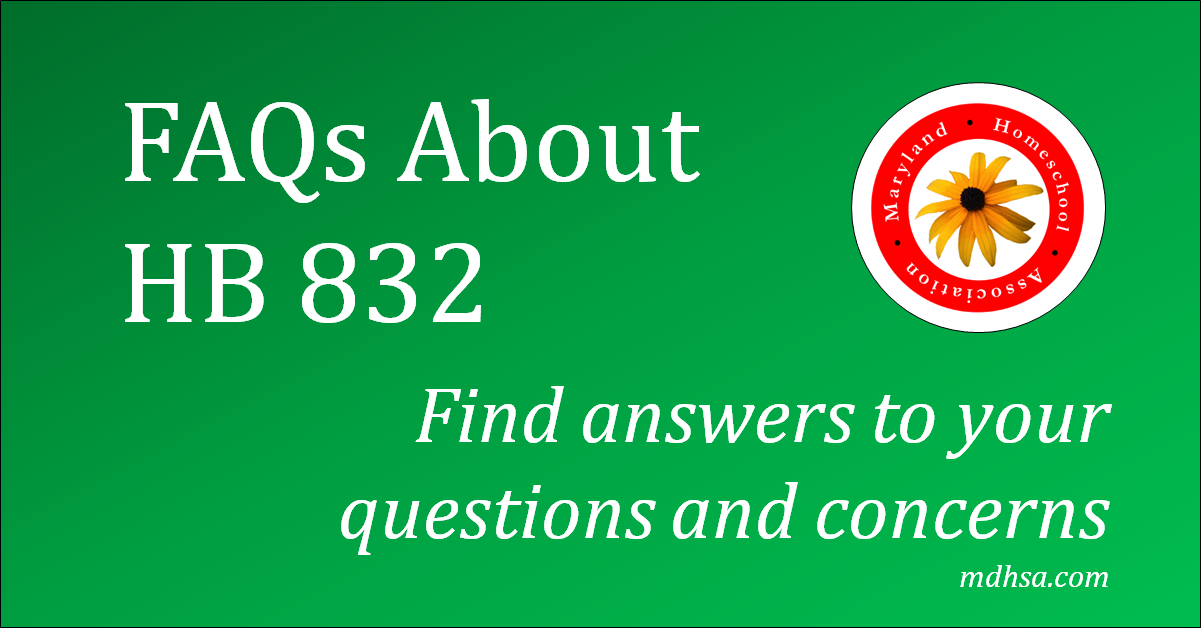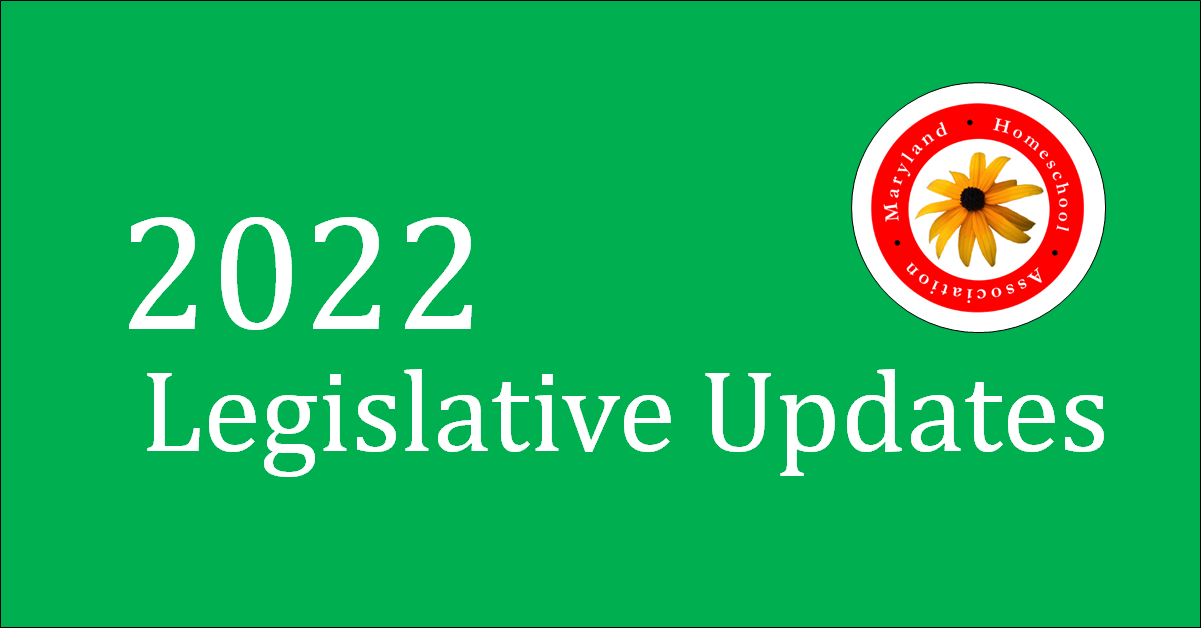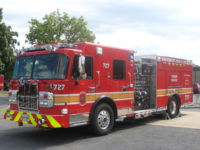** This webpage is provided for informational purposes. It is not legal advice. **
DEFEATED – 2018: HB 1798 – County Boards of Education – Home Instruction Program – Observation of Instruction and Reporting of Abuse and Neglect
This bill would require parents to annually inform their county school boards of their homeschool child’s primary instructor and of the primary location where homeschooling is taking place each year. Furthermore, in order to legally homeschool in the state of Maryland, parents would be required to allow a representative of the county board to observe instruction at the family’s primary homeschooling location at least twice a year. Finally, this bill would require county school board employees who observe a family’s instruction and who believe a homeschool child has been subjected to abuse or neglect to report their suspicion to the proper authorities.
Get detailed information about HB 1798, along with talking points and FAQs about the bill.
Delegate Turner has notified MDHSA in writing that this bill WILL NOT go to hearing at any time for the remainder of the 2018 session.
Delegate Frank Turner from Howard County is the primary sponsor of this bill, along with Delegate Anne Kaiser (Montgomery) and Delegate Eric Ebersole (Baltimore and Howard Counties). Delegate Kaiser is the chairwoman of the House Ways and Means Committee and holds the power to schedule bills for hearing.
Nothing. The lead sponsor has publicly stated in writing that he will allow this bill to die in committee. No further action is needed.
2018: HB 1817 – Prince George’s County – Home School Students – Extracurricular Activities PG 516-18
This bill would allow homeschool students living in Prince George’s County to participate in extracurricular activities, including sports.
Get the latest update on HB 1817 from the General Assembly.
Delegate Angel, of the Prince George’s County Delegation notified constituents that this bill was filed in error. This bill will not move forward from the committee this session.
The Prince George’s County Delegation, including Delegate Angela Angel who sponsored HB 996 (see below), introduced this bill. The bill only allows Prince George’s County schools the option of allowing homeschoolers to participate in afterschool activities, as long as space is available.
Nothing. This bill was filed in error.
2018: HB 996 – Homeschool Students in Maryland – Extracurricular Activities
This bill would allow homeschool students to participate in interscholastic athletics, music, drama, student organizations, and other school-sponsored programs that are held after regular school hours, as long as the activity does not offer academic credit.
Get the latest update on HB 996 from the General Assembly.
The House Ways and Means Committee heard this bill Friday, February 23, 2018. Two homeschool families testified for the bill. Written opposition testimony was submitted, but no one testified against the bill in person. You can watch a recording of the hearing by clicking this link and fast forward to the 1:42 mark.
Delegate Angela Angel from Prince George’s County is the sole sponsor of this bill. The bill would not guarantee homeschoolers the right to participate in any afterschool activities. The bill would only allow individual school districts the option of allowing homeschoolers to participate, as long as space is available.
Write to the House Ways and Means Committee members to express your opinion of this bill.
2018: HB 544 / SB 369 – Public and Nonpublic Schools – Classwork and Assessment Involving Live and Dead Animals – Student Choice Policy
This bill would allow public and nonpublic school students to opt out of participating in or observing classwork or assessments that includes dissections. Students would be allowed to complete alternative assignments without losing points.
Get the latest update on HB 544 from the General Assembly.
Get the latest update on SB 369 from the General Assembly.
The Senate Education, Health, and Environmental Affairs Committee gave this bill an Unfavorable report. The House Ways and Means Committee gave this bill and Unfavorable report.
This bill indirectly effects homeschoolers by disallowing county homeschool liaisons from requiring high school homeschool families from having to provide “regular and thorough instruction” in biology labs that include dissections.
This bill is effectively dead for the 2018 session.
2018: SB 261 – Community Colleges – Vocational Certificates, Apprenticeship Training Programs, and Associate Degrees – Tuition Assistance
This bill would create a tuition special assistance program for community colleges. Eligibility would require a high school diploma, GED, or completion of a home instruction program; a minimum high school GPA; and a 2-year minimum state residency requirement. Students who received the tuition assistance would be required to complete 15-hours of community service each semester.
Get the latest update on SB 261 from the General Assembly.
This bill was heard by the Senate Education, Health, and Environmental Affairs Committee on Feb. 7, 2018.
This bill currently states that homeschoolers have to be in compliance with “state and county requirements”. Maryland regulations explicitly prohibit counties from placing extra requirements on homeschool families.
Write to the Senate Education, Health, and Environmental Affairs Committee members to ask that they keep homeschool eligibility expressly listed in the bill but to change the language regarding “county requirements” and homeschoolers.
2018: SB 317 – Higher Education Degree and Job Certification Without Debt Act of 2018
This bill would create the Maryland Community College Promise Program, a first-come, first-served grant program to help certain students finish their community college or 4-year college program.
Get the latest update on SB 317 from the General Assembly.
Get the latest update on HB 016, a very similar, but less comprehensive bill that also fails to include homeschoolers from elibility.
SB 317 was heard by the Senate Education, Health, and Environmental Affairs Committee on Feb. 7, 2018. HB 016 was heard by the House Ways and Means Committee on Jan. 25, 2018.
Section 16-703(B)(IV) of the bill outlines initial eligibility criteria as a student who has “graduated from a Maryland public secondary school or received a GED not more than 12 months before first receiving a grand under this program …” The current language unintentionally disqualifies all homeschool graduates from eligibility, unless they take and pass the GED.
Write to the Senate Education, Health, and Environmental Affairs Committee members to ask that they adjust the language regarding eligibility listed in Section 16-703(B)(IV) to include students who have completed a home instruction program.
2018: HB 940 – High School Credit for College Courses Act of 2018
This bill would require local county school boards to award elective credit to public school students who complete college-level courses.
Get the latest update on HB 940 from the General Assembly.
This bill was heard by the House Ways and Means Committee on March 1, 2018.
This bill would only effect homeschoolers who choose to return to public high school and are attempting to transfer in credits completed as part of their homeschooling.
Write to the House Ways and Means Committee members to express your opinion of this bill.
2018: SB 664 – Education – Foreign Language Requirement – Computer Programming Language Courses
This bill would public school students the option of completing courses in computer programming language in order to meet their foreign language graduation requirement.
Get the latest update on SB 664 from the General Assembly.
This bill was heard by the Senate Education, Health, and Environmental Affairs Committee on Feb. 28, 2018.
This bill indirectly effects homeschoolers by creating a new option for meeting the foreign language graduation requirement that applies to homeschoolers as part of the “regular, thorough instruction in the studies usually taught in the public schools to children of the same age”. Families should keep in mind, however, that choosing to a substitute computer programming language for traditional foreign language classes may not fulfill college entrance requirements.
Write to the Senate Education, Health, and Environmental Affairs Committee members to express your opinion of this bill.
2018: HB 966 – Education – Voluntary Ethical Special Education Advocate Certificate Program
This bill would create a voluntary certification process for special education advocates to be approved by the Maryland State Department of Education. Advocates would be required to complete training, take a test, and pay a fee every two years.
Get the latest update on HB 966 from the General Assembly.
This bill was heard by the House Ways and Means Committee on March 1, 2018. Delegate Ebersole brought with him a panel of speech language pathologists to testify in support of this bill. No actual special education advocates testifed in person for or against the bill.
In its current form, this bill would create a voluntary certification program for anyone wishing to work as a special education advocate. Del. Ebersole, the lead sponsor of the bill, was asked to sponsor this bill by a Baltimore-area law firm who believes parent-consumers need to be protected against unscrupulous advocates who “run up bills” unnecessarily. This bill, however, creates a conflict of interest between MSDE and the advocates who may be filing a complaint with or against them.
Write to the House Ways and Means Committee members to express your opinion of this bill.
2018: SB 302 / HB 355 – Accountability in Education Act of 2018
This bill would create an independent Education Monitoring Unit with an Investigator General and Review Commission that would investigate K-12 education complaints. It would also establish an anonymous electronic tip program. This bill has been cross-filed and marked as an Emergency bill, meaning it would go into effect immediately, if it passes both houses and is signed by the governor.
Get the latest update on SB 302 from the General Assembly.
Get the latest update on HB 355 from the General Assembly.
This bill was heard by the Senate Education, Health, and Environmental Affairs Committee on Feb. 7, 2018. This bill was heard by the House Ways and Means Committee on March 1, 2018.
This bill creates a new level of accountability for public schools.
Write to the Senate Education, Health, and Environmental Affairs Committee members and the House Ways and Means Committee members to express your opinion of this bill.
2018: HB 393 – Elementary School Students – Daily Physical Activity (Student Health and Fitness Act)
This bill would require schools to provide students with a daily program of physical activity totaling 150 minutes each week, including physical education and developmentally appropriate, moderate-to-vigorous activity, including recess.
Get the latest update on HB 393 from the General Assembly.
This bill was heard by the House Ways and Means Committee on Feb. 8, 2018.
This bill would has no effect on homeschoolers, but is shared for informational purposes.
Write to the House Ways and Means Committee members to express your opinion of this bill.
** This webpage is provided for informational purposes. It is not legal advice. **
Last modified on March 31, 2020



